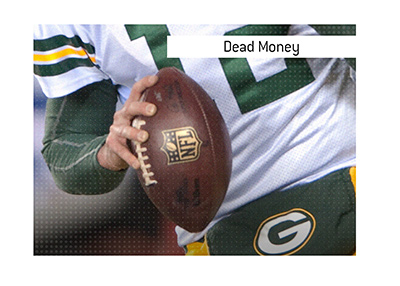Definition of Dead Money
GambleAware
Please Gamble Responsibly

Recent Articles
1970 NHL Draft Wheel: The Conspiracy That Built the Buffalo Sabres
The Five Teams That Wayne Gretzky Nearly Played For
Bobby Orr And The Insane Plus 124 Season
Who Might Be Fighting on the UFC's White House Card?
Why Wayne Gretzky Chose Number 99
The Best Games Ever Played on Christmas Day
What Was The Longest Winning Streak in NFL History?
Deacon Jones and the 173.5 Sacks the NFL Never Counted
The 2010 Chargers: The NFL's Best Team That Missed the Playoffs
Jim Brown: The Only Player to Win MVP in His First Two Seasons
Betting Calculators
Promotions
Education
How to Bet on the World Cup 2026 - A Complete Beginner's Guide
How to Bet on the Cheltenham Festival 2026 - A Complete Beginner's Guide
Cheltenham Festival 2026 Betting Guide: Full Schedule, Odds and Preview for All Four Days
Rugby Betting in the UK: Where to Bet
Best Horse Racing Betting Sites in the UK
How To Start Betting Online in the UK
Scottish Premiership Betting Guide - Odds, Markets & Match Insights
Beginner's Guide to Football Betting
Curling Betting: Where To Bet on Curling
International Content
Bet365 Bonus Kod 2026 - THEKING | 5.000 RSD + 50 Besplatnih Spinova
Bet365 Bonus Koda Slovenija 2026 - THEKING | Do €100 v Stavnih Kreditih
Bet365 Bonus Code Österreich 2026 - THEKING | Bis zu €100 in Wett-Credits
Code Bonus Bet365 Québec 2026 - THEKING | Misez 10$ Obtenez 50$
Bet365 Código de Bono 2026 - THEKING | Bono de Hasta S/500
Cómo Apostar en el Mundial 2026 - Guía Completa para Principiantes
Apuestas River Plate - Siguiendo a los Millonarios desde Argentina
Apostar en la Liga Profesional Argentina 2026
Parier sur les Canadiens de Montréal
Article Archive
Baseball (139)
Basketball (290)
Boxing (149)
Football (915)
Golf (32)
MMA (300)
Other (783)
Soccer (2233)
Tennis (97)

 For instance - let's say that Aaron Rodgers signs a 5-year, $150 million deal with the Green Bay Packers. This includes a $50 million signing bonus, a base salary of $19 million a year and five $1 million workout bonuses.
For instance - let's say that Aaron Rodgers signs a 5-year, $150 million deal with the Green Bay Packers. This includes a $50 million signing bonus, a base salary of $19 million a year and five $1 million workout bonuses.